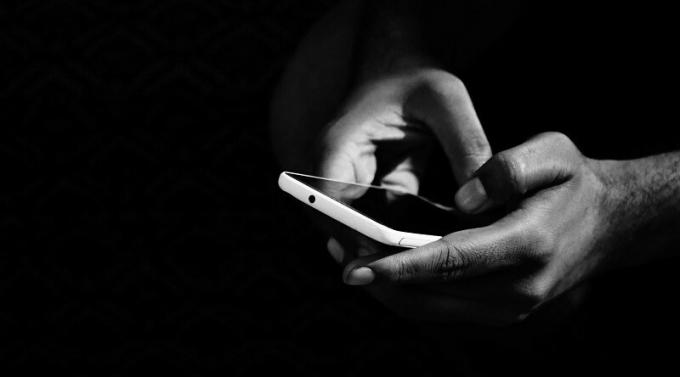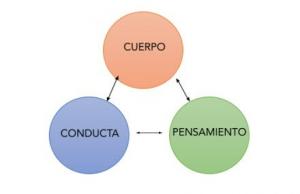Screen addiction: a new addictive disorder?
Lately there has been a lot of talk about a phenomenon that has come to be known as “addiction to screens”. This concept refers to the psychological problems that can derive from an excessive use of technological devices of relatively recent appearance, such as a tablet, a mobile or a computer. It is important to highlight that, for the behavior to be called "addiction to screens", the person must invest a large part of their day to day in being in front of a screen.
But, despite the fact that an increasing use of technological devices has been verified, we find that, currently, there is no consensus about whether these psychological problems are part of the same category of diseases as drug addiction or, on the contrary, present sufficient characteristics of their own to be a psychopathology apart. Is there, then, a real addiction to screens?
- Related article: "Mental health: definition and characteristics according to psychology"
Addictions and their characteristics
First, it is important to define what an addiction is. An addiction is a pathology that entails a dependency towards the consumption of a substance or towards a specific behavior. The most important characteristic of this pathology is its enormous capacity to "hook" the person who suffers from it and submerge them in a vicious circle that is very difficult to break.

This vicious circle will move between discomfort and the consequent search for relief through consumption or addictive behavior. which, in turn, will cause more discomfort in the future. All this will lead to the person trapped in this circle gradually developing an obsession towards the source of reinforcement. Little by little, his whole life is oriented towards that source of addiction, which apparently becomes his only source of motivation.
For an addiction to be such, they must manifest the following characteristics:
- The withdrawal syndrome, which implies intense and very annoying discomfort if the person spends several hours without being able to consume the addictive substance or perform the action that produces the addiction. The discomfort that appears can sometimes become physical, such as sweating, tremors or dizziness.
- The so-called "tolerance". To experience relief, the addicted person needs more of the item in question, and more often. Obviously, this generates a greater dependence on the substance or behavior.
- Finally, we have the sensation of loss of control, which the affected person may experience when they realize that they cannot escape the aforementioned vicious circle.
@image(id)
- You may be interested in: "How are addictions treated?"
Is “screen addiction” an addiction?
screen addiction could be included in the so-called behavioral addictions, since the addiction is experienced towards a behavior (in this case, the continuous exposure to devices technological), not the effect that a substance has when consumed and interacts with our cells nervous. And although it may seem strange, this type of addiction is not yet officially included in psychiatry manuals. For what reason?
It is true that the inclusion of psychopathologies in diagnostic manuals is not a quick process. The use of the Internet has not become popular until the last decades, so it is a fairly recent phenomenon. In addition, these manuals do not usually include the subtypes of addictions.
Thus, for example, the appearance of a new drug will not imply its inclusion, since it is already understood that it is included within drug addiction.
Of course, the fact of not including an addiction does not imply that the damages of the person who suffers from it are underestimated, and obviously it will be considered an addiction with the same characteristics as the others. However, the non-inclusion of this behavior in the manuals may be due to other reasons. Mainly, the fact that it has not been proven that "addiction to screens" causes reactions comparable to other addictions.
Specifically, there is no clear evidence that people who invest a large part of their day to day in devices electronics develop "tolerance", one of the essential characteristics of addiction, which we have already explained in the previous section. In other words, there is no reliable evidence that people who regularly use technological devices need to more and more exposure time to find the characteristic “relief”.
In addition, those who consider that there may be a pathology related to the abuse of electronic devices They do not refer to any device with a screen, but to those that are connected to the Internet or to a network diffusion. This makes the concept of “screen addiction” unclear. In any case, what generates dependency is the use of certain digital platforms, such as social networks like Instagram or TikTok, or chat applications such as Telegram or WhatsApp.
Thus, the term "addiction to screens" is an approximate way of implying what a psychological problem that does exist and is present in the lives of people consists of. many young people and that, regardless of whether from a technical point of view it is part of addictive disorders, is a reason to seek professional help in therapy. The thing to keep in mind is that all addictions are based on dependency, but not all dependency-based psychological disorders are technically addictions. For this reason, health professionals specialized in addictive disorders and dependency problems we adapt our form of intervention taking into account the specific problems that each patient faces, without taking anything for granted.
- Related article: "How is the psychological treatment of compulsive gambling and compulsive gambling?"
The treatment
If currently addiction to screens is not officially considered a "sister" psychopathology of, for example, alcoholism, and therefore not These behaviors are included in addictive disorders, how are patients who come to therapy to correct this treatment treated? behavior? In general, the strategies used in addictive disorders are combined, on the one hand, with the psychological intervention aimed at solving problems related to action (such as anxiety), something that also occurs in the intervention in Disorders of impulse control such as trichotillomania and onychophagia.
In addition, health professionals specialized in addictions and other psychopathologies adapt our form of intervention to other typical characteristics of this problem; among them, the fact that it occurs above all in adolescents and young adults, for which reason coordination and communication with families is especially important.
In any case, that the so-called addiction to screens is currently not considered by professional circles as "addiction", does not imply that one has to underestimate its importance. This type of behavior can have a negative impact on a person's life and often hide psychological disorders which, if not treated, can worsen, so it is very important to go to therapy at the first symptoms of "hook". It is especially important if they begin to occur during childhood, since it is a behavior that can hinder the maturation process of the boy or girl.
Are you looking for professional help for addiction to screens?
If you want to have professional support to overcome an addiction or a psychological disorder based on dependency, contact us. In recal clinic we will be happy to attend your case.



